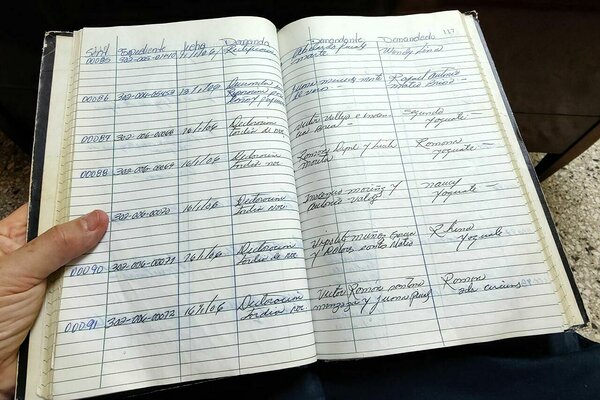Dominican Certificates – Frequently Asked Questions
Clear answers on apostilles, delivery times, translations, payments, and how our process works.
Quick answers (all services)
- Apostille & legalisation: For use abroad, most documents are issued legalised and apostilled.
- Typical timelines: initial checks/searches can complete in ~1–7 days; standard shipping by certified airmail is ~2–8 weeks; express courier is available.
- Translations: Certified EN/FR/DE translations available on request.
- Two-step services: Some items (e.g., marriage certificates) work in two steps: (1) we search and confirm the civil-registry entry; (2) we issue the certificate and ship it with apostille.
Dominican Republic vital certificates: Q&A
Ordering your Dominican certificates from the Dominican Certification Service
Can anyone apply for a Dominican birth, marriage, death, adoption or divorce certificate?
Yes. These Dominican civil registry records are public, and we can apply on your behalf with the details you provide.
There are many certificate types. Which do you recommend?
We issue long-form certificates that reproduce the complete ledger information. This is the format typically required by government bodies and embassies.
How does your process work?
- Search & quotation. We charge a search fee (amount depends on age of record and any missing data) and locate the correct office/ledger.
- Draft check. Where possible, staff produce a draft ("consultation sheet") from the database; otherwise we locate the ledger manually and verify details.
- Your confirmation. We email the draft for you to confirm spellings and key facts; transcription typos can usually be fixed at this stage.
- Issuance & legalisation. We obtain the original long-form certificate, legalise it (bar-coded sticker) and—if requested—secure an Apostille from the Foreign Ministry.
- Dispatch. We ship using your chosen delivery method.
Ready to get started? Use our online order forms: Order birth certificate | Order marriage certificate | Order divorce certificate | Order death certificate
What details should I provide to get started?
Full names (including maiden names), event type, town/office, and date (exact or month/year). A delivery address helps us quote shipping options.
Errors in Dominican public records
Do Dominican civil records often contain mistakes?
Simple mistakes are common. We encounter them regularly and address them as the process allows.
What kinds of errors are most common?
- Original ledger errors (e.g., a given name written incorrectly or nationality entered incorrectly). These typically require a formal correction process.
- Transcription errors introduced during computerisation for printing (e.g., "30 June" entered as "3 June"). These are usually straightforward to correct by verifying the ledger.
How easy is it to correct errors?
If the ledger is correct and the typo occurred in data entry, officials usually correct it after checking the ledger. If the ledger itself is wrong, corrections generally require a formal procedure and can take time.
Mailing your Dominican vital certificates
What delivery options do you offer?
- Dominican certified mail — typically ~2–8 weeks (sometimes longer).
- UPS courier — recommended for urgent deliveries to North America, Europe, and worldwide.
Detailed information & order forms:
Last updated 13th September 2025





_block.webp)